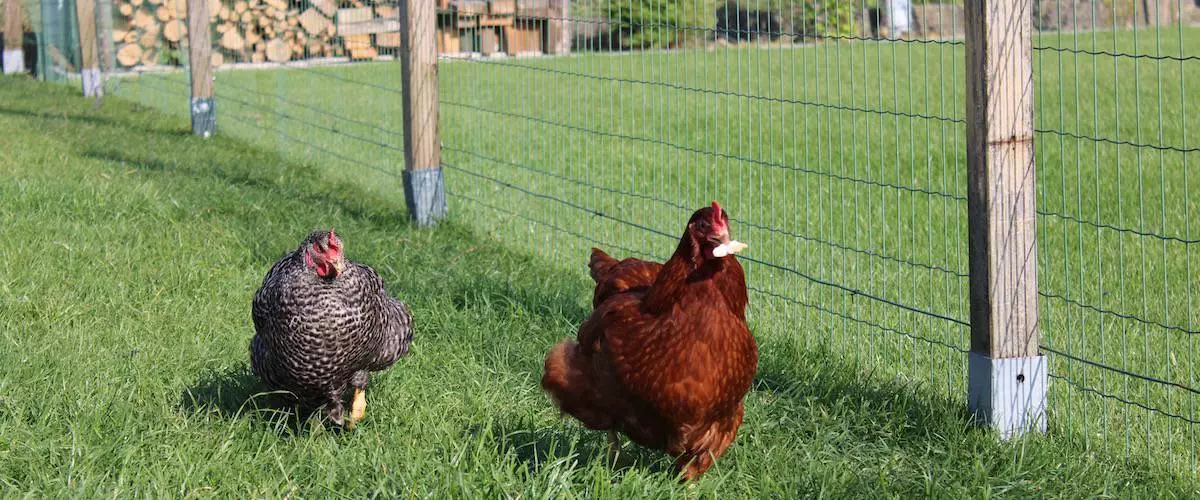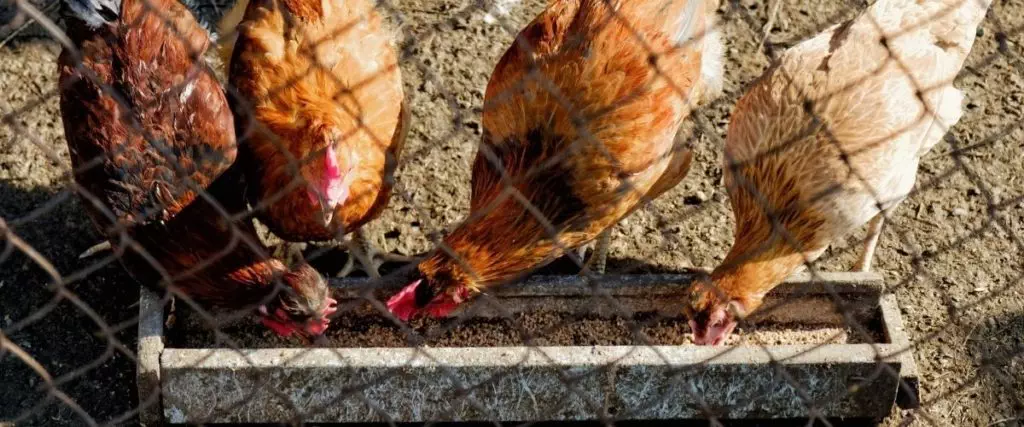Keeping chickens is a brilliant hobby and thousands of people around the UK are now thought to keep poultry as pets. While still technically classified as livestock, most people enjoy their company and the benefits they bring.
According to current sales of chicken food, close to a million households in the UK may own at least one chicken. This is matched up with the sales of chicken coops. They have acted as a human companion for over 8,000 years, yet it is thought that they’re now as popular as ever.
So whether the idea has just been planted in your head and you want to find out more, or you are most definitely going to be welcoming a new member to your family, this is all you need to know about keeping chickens.
Why Keep Chickens?
A chicken can give its owner a lot more than just eggs for breakfast. They are incredibly fun animals, with big personalities and attitudes. Chickens offer something a bit different for anyone who doesn’t see the appeal in your regular fluffy cats, dogs and hamsters, and they are a lot more intelligent than they’re given credit for.
The wish to keep chickens may conjure up the idea of a more simple existence, bringing people closer to the countryside and rural life. If it was good enough for Barbara and Tom in The Good Life, why not you too?
Watching them peck and scratch to their heart’s content offers a lot of people a calming environment, just as watching a tank of fish would. Many people can also show chickens, which is popular amongst those who own visual breeds such as silkies, Brahmas and Booted Bantams.
But it is thought that chicken ownership is mainly rapidly rising amongst those conscious about where their food comes from. While there may be no economic benefit to having your own eggs, the freshness and quality definitely beat those bought in a supermarket. You also know that the chicken is living a life of luxury – battery farming has been in the spotlight for a few years now.
We will warn you that according to the Animal Welfare Act 2006, your birds will need attention every single day. They aren’t pets for those who want something easy to look after, but they are generally more simple to look after than your dogs and rodents.

Choosing A Breed
There are hundreds of varieties to choose from. Some are a bit more work than others in terms of feather upkeep and demands, so are best suited to the seasoned chicken keeper. Then there are breeds which can lay over 300 eggs every year and some which barely lay any.
-
Size
Some breeds are available only as large fowl, and others have bantam varieties too (which look the same but are just a bit smaller). Then there are some which are only available in bantam size, AKA ‘true bantams’. These are popular for showing purposes.
-
Eggs
There are utility breeds which are better at laying eggs than others if this is your wish. Those bred for their looks and showing are generally not as good as utility hens, and bantams obviously lay smaller eggs. Goldlines, White Leghorns and Amber are some popular high laying breeds.
There are several hybrid breeds out there too, which have been bred in order to look great but also be brilliant layers. You can also get chickens which lay certain colours of eggs.
-
Behaviour
Just as with any pet, some breeds are more sociable and docile than others. Silkies, Rhode Island Reds, Cochins and Speckled Sussexes are popular breeds for beginners as they are friendly, can be good around children and can even be lap animals.
Chickens with feathered feet will likely dig less which is important if you don’t want a damaged lawn, and small bantam chickens can fly and jump over high fences. Large breeds tend to be heavier so won’t fly as much.
There are breeds such as the Orpington which hate getting wet or being up high, so you would need to cater their accommodation to suit.
Are Chickens Social Animals?
Free-ranging chickens are social animals. When in a group, the hens and chicks are the core, while roosters live independently.
They often have a ranking system which can involve criteria such as breed, size, age and even colour. New chickens are always at the bottom of the pecking order (and that isn’t a pun – this is where the term actually comes from!)
But their social qualities also mean that they’re always looking out for fellow chickens in their group and they are said to be very family-orientated.
For these reasons, you probably shouldn’t keep just one chicken on its own. A single chicken will not thrive this way, as they like to eat, roost and dust-bathe together. Because of their group makeup, they can also lay eggs in communal nests and all get involved in the raising of the chicks.
Keeping at least three chickens is a good idea – this way, if you lose one, there are still two for company. Introducing a new one can be quite a stressful experience.

Where To Keep Chickens
Unless you have a big barn in which they can live, you will likely be keeping them in a coop in the garden. This can bring some challenges, such as giving them enough space and the need to protect them from predators.
A chicken coop will probably be the biggest expense in your bird ownership journey. You should purchase one which is spacious, high-quality and will keep your chickens safe. Spending that bit more for something which is quality will come in handy over time, but you can always make DIY modifications such as stronger wiring and regularly maintain affordable models if you are on a budget.
If your home and garden are guaranteed to be predator-free and secluded, you could choose to keep them free-range, but it is still always a good idea to fence off any areas through which they could escape or dig through. It’s recommended to have somewhere safe for them to sleep, though, especially overnight.
Also bear in mind that they naturally forage and scratch, bathe in dry soil, don’t bother about where they go to the toilet and peck at fresh plants, so if your garden is your pride and joy, limiting where they can go will be valuable.
Chicken Runs
There are no laws or guidelines as to how much space a chicken should have, although we say it should be 1 sq m per chicken at the very least. You should give them enough space to have a good run around, though. If you have multiple birds, ensure they all have their own space and aren’t cramped when out of their coop.
Many commercially available runs are on the smaller side, so most owners will use these for when the chickens need air and space but the weather is bad. Giving them free run of a large open space like a garden is recommended.
Pens made for keeping rabbits, dogs and other small animals safe and secure are commonly used for chickens, too.
We have reviewed some of the best ready-made chicken runs.
What Chickens Eat
A properly formulated chicken feed is best for any chicken, and it has to be just right for their age, their future growth, and general wellbeing. They may also need specific food if they are of egg-laying age to ensure this all goes smoothly, otherwise, they won’t be able to keep up with the demand it has on their bodies.

Commercial food has been well-researched over the years. Mixed corn is good as an overnight treat but don’t give them too much as it can make them fat. You should provide a daily serving of greens such as cabbage and spinach, and clumps of grass with the mud intact can be good too.
Grit should be available at all times, as chickens don’t have teeth so use the grit to grind down food. You also need to give them fresh water, as dehydrated chickens can moult, stop laying, and struggle feeding. Also, read up on the benefits of apple cider vinegar for chickens.
Avoid household scraps – this can be hard to monitor to ensure they are getting enough of a balanced diet. Also, avoid lettuce, and potatoes and peelings unless cooked.
What To Do If Chickens Become Ill
Signs that your chicken may be ill include not eating, weight loss, a change in behaviour or confidence levels, and dull eyes. They may also be suffering from respiratory illnesses, with coughing, weepy eyes, and sneezing.
When you get your chickens, you should always register with the closest hen-friendly vet and visit them ASAP when your pet first shows signs of illness. In the meantime, separate them from the rest of the flock, keep them warm and dry, provide water and food and some treats to encourage energy, and
How Many Chickens Can I Own?
Chickens usually like being in a small group, with a minimum of three, as discussed above. You technically can’t have too many chickens as long as they all get along but do remember that with more chickens comes more responsibility, higher costs and a need for a bigger coop and area.
If you have over 50 birds then you must register your flock with DEFRA – but we don’t think you will get to this number, even if you do happen to love keeping them! But do acknowledge that this includes all poultry, such as ducks, geese, quail, guinea fowl, and small chicks.
Is There Anything Stopping Me From Keeping Chickens?
Some councils do not allow it, so you won’t be able to keep poultry if you live in these areas. The same applies to rented properties, so check deeds and with your landlord first. As much as you may see them as pets, chickens are technically classed as livestock.
Any close neighbours may also have concerns about having chickens in close proximity, from the noise they make to the attraction of possible vermin, and odours from droppings and food.
Planning permission may also be required for any coops above a certain size. This is unusual, but check if you have any doubts.

